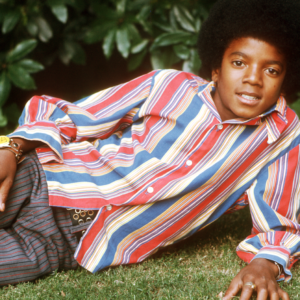5 April 1983: Swanson was the silent screen’s most successful and highest paid star and carried herself like one until the day she died

Gloria Swanson, one of the silent screen’s most successful and highest-paid stars, passed away on April 4, 1983. Renowned for her role in the 1950 classic “Sunset Boulevard,” Swanson’s legacy as a Hollywood icon is unforgettable. Her portrayal of Norma Desmond, a former silent film star yearning for a comeback, echoed her real-life experience as a leading actress of the silent film era who faced challenges transitioning to sound films. Swanson’s weekly earnings of $20,000 during her peak reflected her immense popularity and success.
Despite her smooth technical transition to sound, the Great Depression era audiences did not embrace her grand, mimed acting style. The hedonistic, Flapper Age demeanor she personified became outdated, contrasting sharply with the emerging stars like Carol Lombard and Ginger Rogers. Unlike many of her peers, Swanson did not settle for roles that did not suit her regal image, leading to her semi-retirement until her celebrated return in “Sunset Boulevard.”
Swanson’s career began humbly as a shop assistant in Chicago before her dramatic rise to fame. Her physical stature was petite, but her expressive face captured the hearts of audiences. Her financial downfall came with the 1928 film “Queen Kelly,” directed by Eric von Stroheim, which went over budget and contributed to her financial strain. Ironically, von Stroheim later played her butler in “Sunset Boulevard,” directed by Billy Wilder, adding a layer of poignancy to her portrayal.
Gloria Swanson’s life and career embodied the highs and lows of Hollywood’s Golden Age, and her enduring image as Norma Desmond remains a testament to her impact on the film industry.

Gloria Swanson amassed several fortunes portraying unhappy, grotesquely sophisticated women in a string of box-office hits, notably under the direction of Cecil B. DeMille. Films like “Male and Female” (a loose adaptation of J.M. Barrie’s “The Admirable Crichton”) showcased her sexual amorality and eye-rolling dramatics, flouting Victorian standards and captivating audiences. However, Swanson’s true talent lay in light comedy, as recognized by Mack Sennett. Despite this, her public image as a Great Star did not fully align with her comedic abilities.
Swanson joined Charlie Chaplin’s United Artists, financially backed by her lover Joseph P. Kennedy, the father of future President John F. Kennedy. Directors like DeMille and Allen Dwan captured the dual aspects of her persona: the sultry vamp and the laughing soubrette. Swanson’s immense wealth and power, however, became her downfall. When she gained the autonomy to choose her roles, her career suffered due to unfortunate decisions and bad luck.
Swanson’s life was marked by a touching and magnificent self-awareness. Despite her sophisticated and confident public image, she retained an earthy innocence. She once admitted, “I was so innocent I didn’t even know what a homosexual was until I was 30. Can you imagine, in Hollywood?” This blend of innocence and sophistication was evident throughout her life. After multiple marriages, including one to a French marquis, she harbored no illusions about her romantic prospects. Reflecting on her life, she said, “Maybe the odds were against me. When I was young, no man my age made enough money to support me in the style expected of me. There’s no sense kidding myself. I love all the pomp and luxury and style.”
Her sense of pragmatism extended to her epitaph, which she envisioned as: “She Paid The Bills. That’s the story of my private life.” This statement encapsulated her acknowledgment of the financial independence and luxury that defined her existence. Swanson’s legacy, much like her roles, was a blend of grandeur and poignancy, reflecting the complexities of a life lived in the spotlight.





